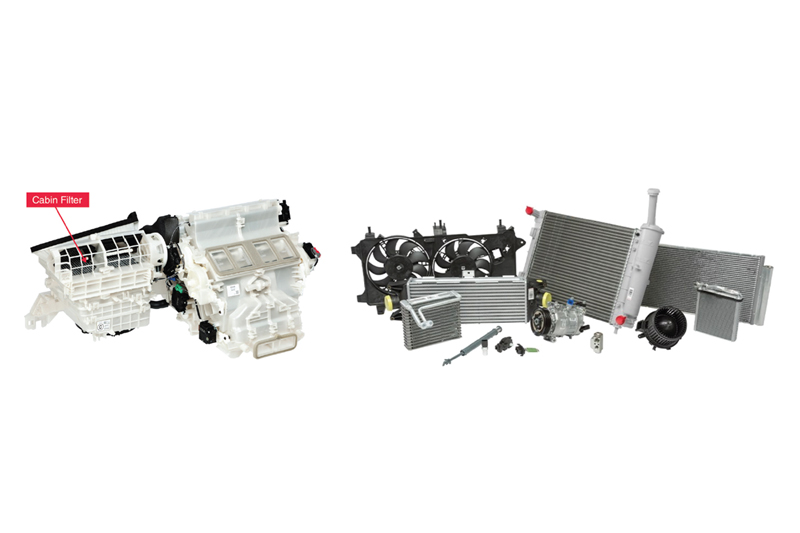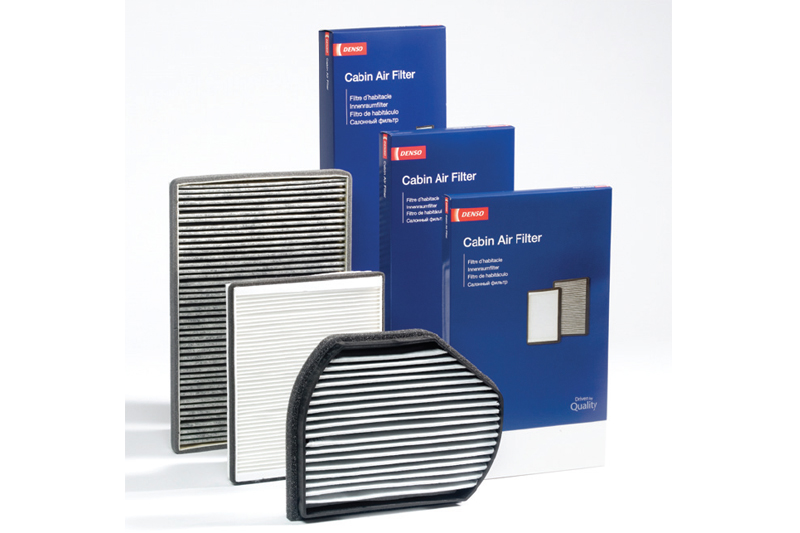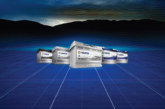
Original equipment manufacturer (OEM) and system supplier, DENSO, says ensuring these systems are functioning correctly is an important responsibility for both your business and your workshop customers.
DENSO said its expertise and innovation is at the heart of its air conditioning (AC) products for both vehicle manufacturers and the aftermarket; however, to ensure they continue to perform effectively for as long as possible, it’s crucial that the AC system is maintained and serviced correctly, and here you can help your workshop customers with not only the quality replacement components they need, but with sound advice too.
Why is AC servicing important?
Although the AC system keeps the vehicle’s occupants comfortable whatever the weather, obviously it is particularly important that it’s running well in hotter conditions.
DENSO said that while the AC system may not be hugely complex, a fault in just one of the components can cause a significant drop in performance, leading to uncomfortable conditions in the cabin, as well as other, less obvious side-effects, such as a decrease in fuel efficiency.
AC overview
AC operation relies on taking heat out of the passenger compartment by absorbing the heat into a refrigerant that transports the heat away from the occupants, so that it can be released outside the vehicle.
The main components of the AC system are the compressor, condenser, expansion valve and evaporator, as well as the refrigerant used to absorb the heat, which in most existing systems, is known as R134a; however, for environmental reasons, vehicles manufactured from January 2017 have had to use R1234yf refrigerant.
A fault with any of the AC system’s main components can often have a big impact on the condition of one of the others, so you need to respond to any request for a replacement compressor, for example, by highlighting the interdependence of these parts and to check/replace related items at the same time. In addition, it’s an opportunity to remind your customers that the cabin filter is a scheduled service replacement item and the correct quality and quantity of oil in the system is also crucial.
What your trade customers should look out for
The two most regular concerns owners tend to raise, which should point workshops to issues with the AC systems, are that the air coming into the cabin doesn’t get cool enough or there is an unpleasant odour in the vehicle, which is often accompanied by misty windows that do not clear effectively.

On hearing of either of these issues, workshops must first look at the performance of the AC system and the condition of the cabin filter, to confirm the customer’s complaint.
As mentioned before, the refrigerant is a key element within the AC system, as its constant recirculation removes heat from the air, so, to cool the incoming air effectively, it needs to be at the right level and clean enough to run through the system’s components efficiently. When it comes to the odour and misting issues, it’s the cabin filter that must be considered because, over time, the performance naturally drops as it becomes contaminated by the pollutants filtered out.
Regular maintenance is key
Particularly at this time of year, DENSO encourages motorists to have their vehicle’s AC system serviced preferably every year, but certainly at a minimum of every two years, which should include the replacement of the cabin filter.
DENSO’s AC range
Every DENSO AC component is manufactured to meet OE standards, and the complete programme caters for more than 750 applications; therefore, alongside its cabin filter range that includes both standard particle filters and enhanced combination filters, which have an additional, activated charcoal layer located inside the filtration material, as well as technical support and advice, DENSO is the partner of choice for many aftermarket professionals.







